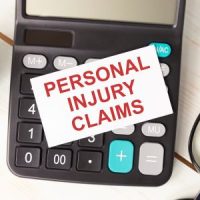Frequently Asked Questions About The Collateral Source Rule In Florida Personal Injury Lawsuits

Personal injury lawsuits that go to trial represent only a small fraction of the total cases, and those trials that result in a ruling in favor of the plaintiff are only a fraction of those, but when plaintiffs win their personal injury cases, the amount that the court orders the defendant to pay is often six figures or more. This does not mean that the plaintiff gets to pocket all the money; most of it simply goes to pay off the medical bills that have been piling up since the accident about which the plaintiff filed the lawsuit. The amount the court orders the defendant to pay represents the total amount that anyone paid or is still required to pay for your medical expenses, whether you have insurance or not. To find out more about how much you can request in your personal injury case and how much of that amount you will get to keep if you win, contact a Jacksonville personal injury lawyer.
Does Having Health Insurance Affect Your Right to File a Personal Injury Lawsuit?
Everyone who gets injured in an accident caused by someone else’s negligence. Your country of citizenship and U.S. immigration status do not affect that right, and neither does your income level. You can win your case if the defendant’s negligence caused you to incur medical bills. It doesn’t matter whether you have paid the bills off in full, if you have not paid a penny, or if you have made partial payments. It also doesn’t matter whether the payments you have made came from your savings, your credit card, your employer-provided health insurance, a wealthy and generous relative, or crowdfunding. The idea that it doesn’t matter whether you have another way of paying your accident-related medical bills besides a settlement from the defendant is called the collateral source rule.
How Much Do You Have to Pay to Your Insurance Company If You Win Your Case?
If your health insurance company made payments toward your accident-related medical bills, you can still win your case. After the defendant pays you a settlement or judgment, though, you will need to reimburse the insurance company for the amount it paid toward those medical expenses. Any amounts that the providers wrote off when settling with the insurance company cannot be included in your damages award, since no one paid these amounts.
What Can the Defendant Say About Your Financial Situation in Court?
If the defendant knows that you have health insurance, they cannot mention this in court. Any information about your ability to pay your bills and your alleged lack of need for money from the defendant is inadmissible in court.
Contact Douglas & Douglas About Personal Injury Cases
A North Florida personal injury lawyer can help you recover damages if you suffered a serious injury in a preventable accident, whether or not you have health insurance. Contact Douglas & Douglas in Jacksonville, Florida for a free consultation.
Source:
leg.state.fl.us/statutes/index.cfm?App_mode=Display_Statute&URL=0700-0799/0768/Sections/0768.76.html





